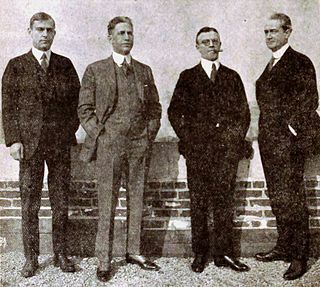A Quote by Creed Bratton
There's not that many people from the sixties who have progressed as writers and are continuing on. They're out there. But I'm one of them who's just continued on, following his own little inner madness.
Related Quotes
There are so many kinds of madness, so many ways in which the human brain may go wrong; and so often it happens that what we call madness is both reasonable and just. It is so. Yes. A little reason is good for us, a little more makes wise men of some of us--but when our reason over-grows us and we reach too far, something breaks and we go insane.
I know some very great writers, writers you love who write beautifully and have made a great deal of money, and not one of them sits down routinely feeling wildly enthusiastic and confident. Not one of them writes elegant first drafts. All right, one of them does, but we do not like her very much. We do not think that she has a rich inner life or that God likes her or can even stand her. (Although when I mentioned this to my priest friend Tom, he said that you can safely assume you’ve created God in your own image when it turns out that God hates all the same people you do.)
About three in the morning as we were continuing instant in prayer, the power of God came mightily upon us, insomuch that many cried out for exceeding joy, and many fell to the ground. As soon as we recovered a little from the awe and amazement at the presence of His Majesty, we broke out with one voice, 'We praise Thee, O God, we acknowledge Thee to be the Lord.'
Jorge Luis Borges was lamenting a variety of Orientalism that was used to measure the alleged authenticity of Argentine and Latin American writers in the midcentury. The Argentine literary tradition was believed by many, including many Argentines, to be concerned with a national imaginary in which the gauchos and the pampas and the tango were fundamental tropes. Borges, in part to legitimize his own Europhilia, correctly pointed out that expecting writers to engage with these romantic nationalist tropes was arbitrary and limiting, a genre that was demonstrative of its own artificiality.
I guess when I was younger, I'd have assumed that in 2008 music would be full of great writers following in the tradition of the young great writers of the '60s and '70s, but it hasn't turned out that way, or at least there are no other writers around that I look at and think: 'Wow, I'm outclassed, I need to get out of this business.'
In the century that has just passed, many of the intellectual elite went mad. It was as if, with the death of God, everyone suddenly turned into a saviour who wanted either to annihilate the obsolete world order or to establish a utopia. Naturally, there were writers among those who went mad. The fact that they had knowledge did not exempt intellectuals: there is madness everywhere. When one loses control over one's self, the result is madness.
I thought of Chatterton, the marvellous boy, The sleepless soul that perished in his pride; Of him who walked in glory and in joy, Following his plough, along the mountain-side. By our own spirits we are deified; We Poets in our youth begin in gladness, But thereof come in the end despondency and madness.
Many a man is mad in certain instances, and goes through life without having it perceived. For example, a madness has seized a person of supposing himself obliged literally to pray continually; had the madness turned the opposite way, and the person thought it a crime ever to pray, it might not improbably have continued unobserved.




































